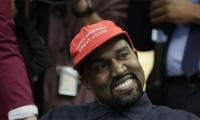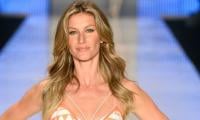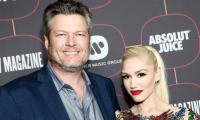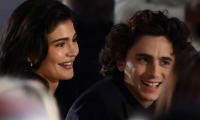Moscow: Russians’ life expectancy last year dropped for the first time in nearly 20 years, according to figures released on Tuesday, with officials blaming the Covid-19 pandemic for the decline.
Life expectancy in Russia plummeted after the fall of the Soviet Union but has been steadily increasing since 2003. In 2020, however, it fell to 71.5 years, compared with 73.3 years in 2019, the ministry’s figures indicated.
Health Minister Mikhail Murashko earlier this month linked the coronavirus pandemic with both "negative demographic trends" and "a decrease in life expectancy". Speaking at his annual televised state of the nation address last week, President Vladimir Putin described the demographic situation in the country as "alarming" and said saving the lives of Russians was the Kremlin’s "highest national priority".
He said he wanted life expectancy in Russia to reach 78 by 2030. The ministry in its report Tuesday also confirmed a previously reported 17.9 percent spike in mortality in 2020.
Authorities have been criticised for downplaying the severity of the Covid-19 pandemic by counting only fatalities where the coronavirus was found to be the primary cause of death after an autopsy.
Russia has been among the hardest hit by Covid-19, with Rosstat statistics agency in February recording more than 224,000 virus-related deaths -- significantly higher than the nearly 110,000 health officials had reported as of Tuesday.
Moscow introduced a strict lockdown in April, when the pandemic hit the country, but most restrictions were lifted by summer. Few measures remained in place in the autumn as the second wave swept across Europe, with authorities opting to salvage the struggling economy and pinning their hopes on the country’s homemade vaccine Sputnik V.
Deputy Prime Minister Tatyana Golikova said Tuesday that over 12 million Russians of the country’s 144 million people have received the first dose of a coronavirus jab. Meanwhile, gaffes during Covid-19 lockdowns have badly dented the popularity of the Dutch king, a study said on Tuesday, as the Netherlands held a public holiday marking the monarch’s birthday.
Confidence in King Willem-Alexander dove to 57 percent, from 76 percent in April last year, the Ipsos poll said as many Dutch donned orange to celebrate King’s Day. "Last year, King’s Day celebrations were cancelled at the last minute because of the outbreak of the coronavirus," said the 37-page report, commissioned by the NOS public broadcaster.
The king then made a televised speech "in which he spoke about the crisis, the uncertainty and the isolation that goes with it. The speech had a positive reception". "But a lot has happened in the meantime. Several times last year the King involved himself in controversy," said the report, which polled 1,000 Dutch adults from all walks of life.
In October 2020, the royals flew to Greece for a holiday, as the country declared a partial virus lockdown. The royal couple returned a day later, following the outcry that erupted in the Netherlands after the details of the trip became public. The royals afterwards apologised in a televised address, but confidence in the King plummeted to 47 percent in December.
The trip came just two months after the royals sparked controversy with a picture on social media that showed King Willem-Alexander and queen Maxima with a Greek restaurant owner on the island of Milos during another trip, without keeping social distancing and wearing facemasks -- two requirements in the Netherlands.
The royal holiday row also came as Willem-Alexander, who turns 54 on Tuesday, faced growing criticism for being out of touch, with the Dutch government ordering a review of the annual royal budget.
"Support for the monarchy is still under pressure and has decreased considerably compared to previous years," the Ipsos report said. Meantime, Americans vaccinated against the coronavirus will no longer need to wear masks outdoors, except at crowded events, US government health authorities said on Tuesday.
Under the newly released guidance from the Centres for Disease Control, fully vaccinated people can eat, walk or attend small gatherings outside without a mask. Masks are still considered necessary for vaccinated people if they are at concerts, parades or large sporting events, even when outdoors, the CDC said.
In a related development, more than 500 health workers have died in Venezuela since the start of the Covid-19 pandemic, a nongovernmental organisation said on Tuesday. "The number of deaths in the health sector with criteria for Covid-19 is accelerating. Information is received of 14 new deaths to reach 513," Medicos Unidos de Venezuela said on Twitter.
Since the first cases were reported in March 2020, health care unions and NGOs have decried precarious conditions in public hospitals and limited access to personal protective equipment for treating infected patients.
Harvey Weinstein. — AFP FileNEW YORK: Harvey Weinstein’s 2020 conviction for sexual assault and rape was...
Liberal Justice Elena Kagan on Sept. 13, 2016. — Slate website WASHINGTON: U.S. Supreme Court justices, wading back...
A representational image of inmates behind jail bars. — Unsplash/FileMOSCOW: A Russian court on Wednesday ordered...
Sudanese soldiers guard the surrounding area of the UNMIS compound in El-Fasher, the administrative capital of North...
US quietly shipped ATACMS missiles to Ukraine. — Report news agencyWASHINGTON: The United States in recent weeks...
US President Joe Biden during his address in California. — AFP FileWASHINGTON: President Joe Biden signed a...







